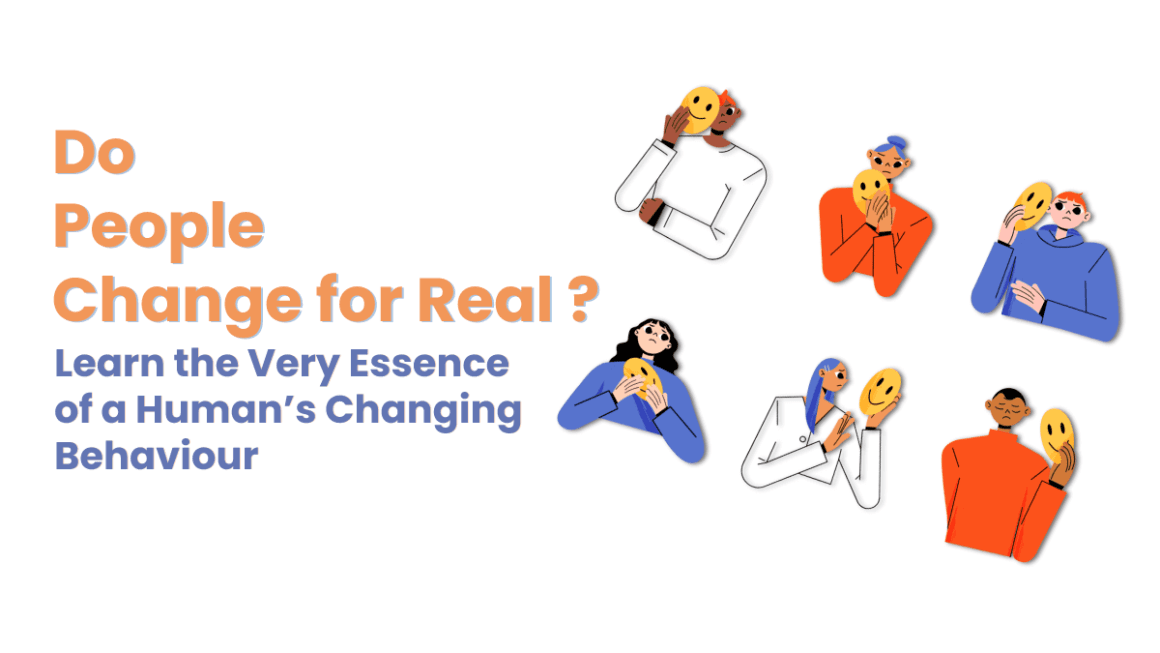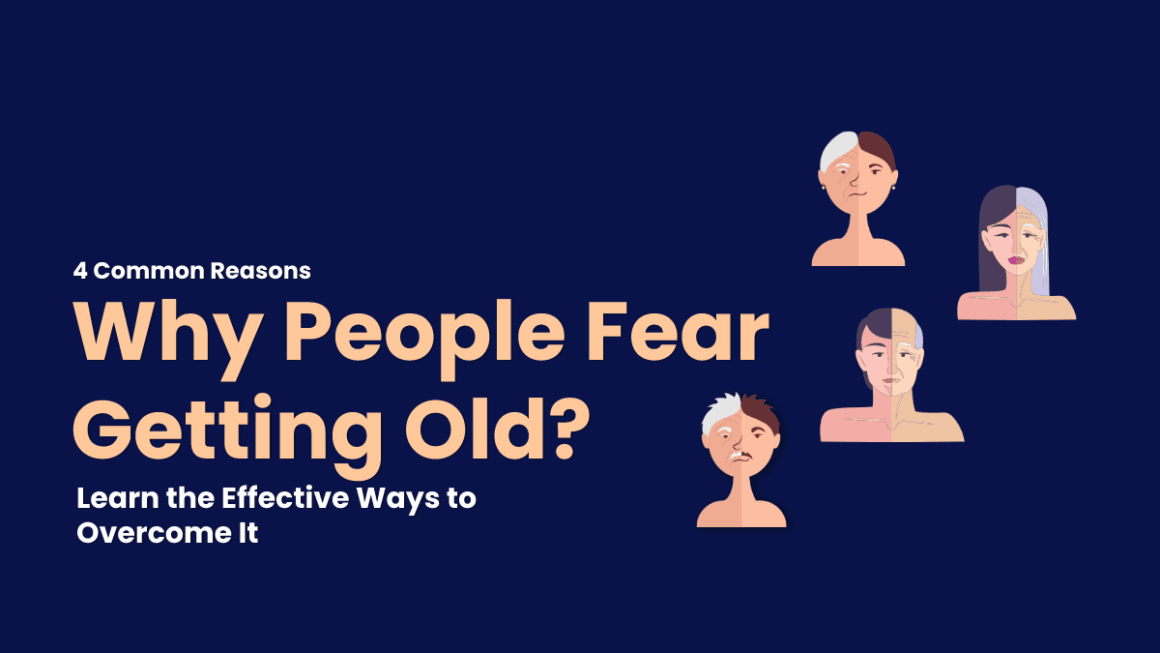Back in 2021, when I wrote the article on how to forgive someone, I had no idea how important it is to forgive oneself. But a year of time can do a lot of complicated things that can make you reflect on this idea and think about it.
I won’t say people make mistakes, but I prefer to say that “we all make mistakes.” In this way, we can relate easily.
Mistakes are part of our lives, and not only mistakes but countless ones. The significant benefit of them is that they help you learn a lot, too.
However, what makes mistakes unbearable is the feeling of regret or guilt they bring, which puts you in a state of non-acceptance of reality, overthinking as well as self-loathing or sabotage.
We might spend hours and hours, or perhaps days, weeks, and months wondering, trying to figure out a way to overcome this.
Figuring out solutions on our own is kind of daunting and can make us miserable. Yet, it’s the best way to overcome any problem we face in our lives. But not everyone is capable of doing that.
Or perhaps they don’t give that much of a try.
Therefore, it’s good to get help. And by reading this article, you won’t only know how to forgive yourself, but you’d also know why it’s necessary.
If you’re ready, then let’s forgive ourselves.
Why Is It Necessary to Forgive Ourselves?
One of the bad things about myself is that when I make a mistake, I don’t take it lightly. I guess it’s the same for many people.
At that moment, when we made that mistake, everything seemed right. But after a while, the realisation came and that’s the time that makes a living an uphill battle.
We go to a state where the present surrounding appears as a joke. And the moment we have already passed becomes the centre of our universe.
We are stuck in that moment but want to get out of it. This is how it feels, right? We play a loop over and over with different possibilities thinking (well, unconsciously) that it would make a difference.
Now, in that state, we feel regret, we feel pain, we feel sick, and even because of that lose our appetite as well as sleep.
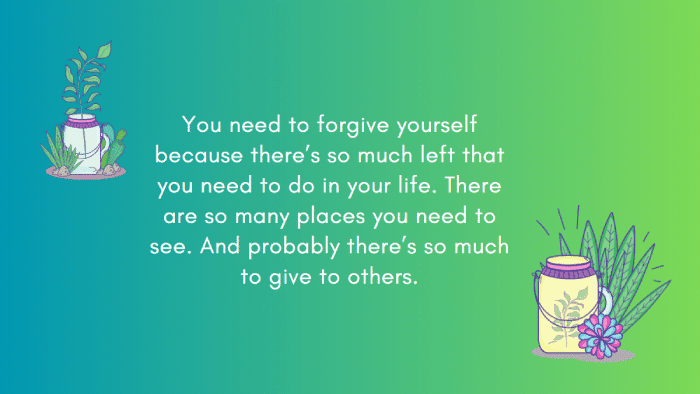
If someone else looks at us in this situation, they’d think we’re suffering from a disease. If we pause and look at ourselves, don’t you think it’s a disease? Not a permanent illness, but something like a cold or fever, but it’s mental.
If we think in this manner, then answering the question, “Why forgive ourselves,” becomes easy.
Because when we fall ill, physically, we feel pain, we feel tired, and we probably lose appetite and sleep. Yet, in that situation, all we want to do is get out of that rabbit hole. And why do we want that?
Because there’s so much left that we need to do in our lives. There are so many places we need to see. And probably there’s so much to give to others.
If I have to sum up, I’d say we want out because we want to move forward.
Yes, that’s why we need to forgive ourselves because we have to move forward. And not only for ourselves but for people we love, things we care about; and when our time will come, we can say, “Yes, I made mistakes, but I’ve learnt from them. And because of them, I’ve become a good person.”
And this is what matters, what kind of person we become.
By following the below steps, you can show yourself a path that can help you forgive yourself. It’s something I did when for the last three months, I was in regret and feeling sorry for myself.
But I was lucky. You’ll find the reason why, and I hope you’re, too. Actually, every person who’s alive is lucky.
9 Practical Steps That Will Surely Help You Not Feel Sorry Anymore About Yourself
The steps are simple but not easy. At some point, you’ll feel like what’s the point of everything. But believe me, to heal ourselves, we have to understand the essence of the process, and as we already know why it’s necessary to forgive ourselves, taking these steps is to make things easier.
Therefore, while you read this article, whatever beliefs you hold, keep them at bay. And once you’re done reading, analyse the whole thing however you like.
1. Accept Reality
For the past few months, I’ve been talking to a very kind person. We both were sharing our thoughts in the most amazing way one can’t anticipate in today’s time. From the start, I have my intentions clear, and they have their intentions clear.
However, as we are humans, we’re bound to make mistakes. For me, things developed, and it kind of, not kind of, it definitely moved into a romantic one.
But suddenly, I came to know about something I did not expect, and as I knew about it, my mind exploded. I became so angry and frustrated I had no idea what I should do.
Also, something else also happened to me during that week, which made the above situation more unbearable.
Note: Sorry, I can’t give the complete accounts of the events to keep that person and other people’s identities safe. Wait for my memoir, haha!
So, it was unbearable, and I overreacted. OVERREACTED!
And that’s it. My reaction to that surprise ended everything we had built during the past few months.
The whole night I was in tears (I guess that happens when your heart breaks. Also, I am naive in this thing, so it is what is supposed to happen.) I was playing stories, cursing myself and that person, too.
For a few days, my day and night went horribly. I lost my appetite and my focus at work and sleep at night.
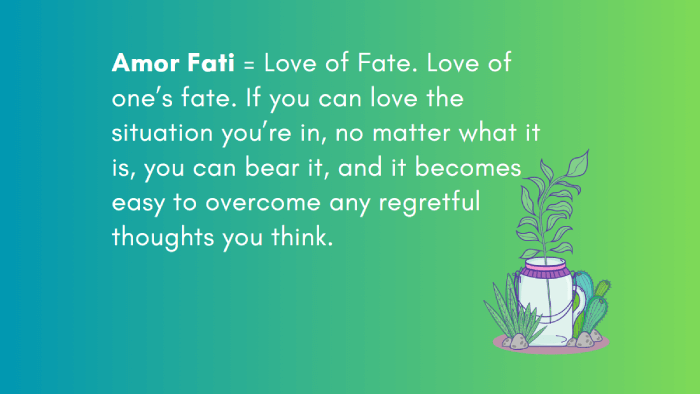
The #1 reason for all those, I was not accepting reality. I was not accepting whatever happened was supposed to happen. And that’s the key to forgiving ourselves for whatever mistakes we have made.
We have to accept the situation and outcomes to move forward.
Friedrich Nietzsche had a great term for this, Amor Fati. By Amor, it means Love of, and by Fati, it means Fate.
Amor Fati = Love of Fate. Love of one’s fate. If you can love the situation you’re in, no matter what it is, you can bear it, and it becomes easy to overcome any regretful thoughts you think.
Like Nietzsche, Stoics had something similar, logos — the path of the universe.
We, humans, try to control every situation, forgetting that nothing’s in our control. Yes, what we did was because of us, but it was not in our control.
Thus, the first thing you need to do to forgive yourself is to accept whatever happened and move to step 2nd, which is Comparison.
2. Comparison of One’s Mistake
Most of the time, I tell people not to compare themselves to others. Because it will rob the joy from your life and make you feel good for nothing.
However, in the case of forgiving yourself, you need to compare.
And when I say compare, you don’t have to compare yourself to other people. Instead, you have to compare your mistake(s) or whatever happened to other people’s mistakes. If you need an example, I prefer to give mine.
A few months ago, the mess up I made was because of something I said.
Actually, it’s a reaction, which was obvious for any person in my situation. Anybody would have reacted in the same way. However, at that moment, I didn’t realise it.
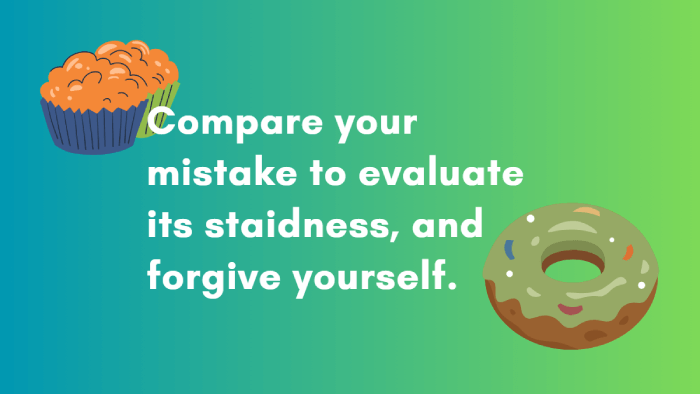
So, I spent days cursing myself even though I am a 5-year long meditation practitioner. But as the laws of nature suggest that nothing remains the same. Therefore, I had my moment, which helped me realise.
And to overcome my situation, I looked back on the situation and compared it to people who commit crimes.
I asked myself, “Was what I did was as bad as robbery?” The answer was, No.
“Did I hurt someone badly other than me?” No.
“Did I lose a fortune which I can’t build again?” No.
“Did I assault someone on both a mental or physical level?” No.
And like these, there were many questions I asked, and each came with no. And this gave me a sense that what I did was actually not a mistake, too. It was not a mistake. Those were my emotions and how I used them to express myself in that particular moment.
Second, it wasn’t intentional as well. It was all because of that moment and my inability to handle situations like that.
The comparison and questions I asked helped me to stop overthinking and move forward. Similarly, you can compare and ask yourself questions. You can go as deep as you can while asking the question.
And for once the answer doesn’t come, Yes, then ensure you forgive yourself without thinking twice.
3. Apologise to Forgive Yourself on Subconscious Level
I knew I didn’t make a mistake. However, things played out in a way that that person was drifting away from me. Perhaps, I think it this way.
So, I didn’t want that. And I wanted to make amends. Thus, I decided to apologise and see where it goes.
Apology. Well, an apology isn’t about bringing SORRY on our tongues. Apology from the start of this universe was never and will not be about saying that word to ask for forgiveness.
The real meaning of apology is that,
- It’s about feeling the pain you caused to another person.
- It’s about taking responsibility for what you did.
- It’s never about showing yourself as strong that you’re asking for forgiveness. It’s a wrong notion that people say that the weak don’t ask for forgiveness, only the strong do. It’s wrong.
- It’s about promising that whatever happened will not happen again. In an explanatory way, it’s about not crossing other people’s boundaries.
That’s what an apology means. Word sorry is just a silly medium. You can use anything, such as I love you, you’re everything to me and so on.
Now, what’s crucial to note here is that when you apologise… you don’t force the 3rd party. People mostly take time to forgive and forget. So, be humble and be patient. Once you have said sorry, give space, and you’ll see.
In my scenario, I guess I was lucky both spiritually and practically that that person is still talking to me, and we are sharing our thoughts in the best way possible.
I am very grateful; not many people are.
Also, don’t take much time to say sorry or apologise because with each day passing, you’re missing the opportunity and creating an image in that person’s mind that you don’t care. So, apologise as soon as possible and give them time to consider it.
I bet things will work in your favour, whatever they may be.
4. Think Beyond
When something unexpected happens, we tend to live around the consequences that the situation brings. Or you can say we believe those happenings as our entire life. Whatever I did, I started to consider that moment my only reality.
And this is very bad soul-sucking behaviour and thinking a person can undergo.
One mistake, one person, one rejection, one failure, etc., can never be your entire life. A month or year of sharing yourself with someone can never be your entire life. But when we’re in regret or guilt, we believe nothing’s left.
Therefore, to forgive yourself and move forward, you must let go of this thinking pattern and think beyond the moment you spent or passed.
Whether you’re in your 20s or 30s, or even 90s, you’ve got plenty of time to start again, apply for different jobs, reach out to people, make new friends, receive funding for your business, etc.
All you need to do is, think beyond and not think, rather truly value the time left. It’s a treasure. So, don’t waste it on what you lost.
You May Also Like
5. Open Up
The feeling of regret also casts a layer of shame around us, and by opening up in front of someone else, you’re taking a step to break that layer. When we make a mistake or go through something unexpected, it burdens us.
Something that’s hard to bear on our own, and by sharing what we are going through, we unload that burden.
We make this clear that this is bothering me, and I need help. Now, the person to whom you’re sharing your thoughts should be someone you can trust because what kind of person they are matters the most.
You need someone who’s experienced, kind and ready to listen to you. Not someone who would give you bad advice.
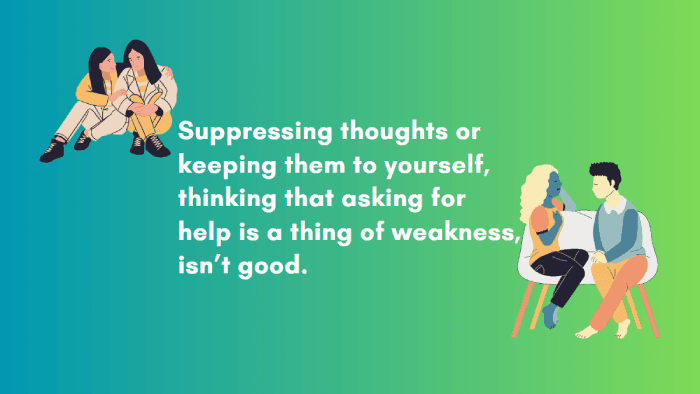
In most cases, we choose friends, so pay attention to what they offer and don’t blindly accept their advice. You surely are reading this post because you need help, but the advice it’s offering might not work for you completely or for your locality.
Therefore, when you contact someone who’s of your religion, locality or even nationality, it makes a real difference.
You get to know what they think of your situation and offer you a better path to overcome it. Suppressing thoughts or keeping them to yourself, thinking that asking for help is a thing of weakness, isn’t good.
Because the one who asks for help is strong because he/she isn’t ready to give up.
Thus, go out or call the person you trust the most and empty all the feelings you’re going through to make you feel light like a feather. And trust me, you’ll feel amazing, and for that, you don’t even have to thank me.
6. Read Books to Forgive Yourself
For some people, it’s hard to open up in front of others. They even shy away from sharing their problems with family and friends. So, what can they do to overcome the feeling of regret? Well, for me, it was hard to open up, but I needed some answers and therefore, books became my companion.
And when I talk about books, I do not prefer Fiction, but rather non-fiction, something that’s related to your problem. Because nonfiction is the sum of problems like yours people have already faced, which also includes the answers.
Mine was a relationship problem. Therefore, I started with Models by Mark Manson, then picked a new book, 8 Rules of Love by Jay Shetty and finally ended up with You Learn By Living by Eleanor Roosevelt.
These books gave me the understanding of taking responsibility for your actions. Furthermore, they allowed me to love myself by myself a little more.
In the same way, you can also find a solution to your problem and allow yourself to love more and regret less over the past. Believe me, books can really help, and they will do wonders if you not only read them but apply the teaching in your life.
Once you’ve read some books, make a trip to the 5th point.
7. Invest In Something New and Meditate
When we cannot forgive ourselves for the mistake(s) we have made in the past, what happens is that we’re stuck in that moment. And to forgive ourselves, we need to detach ourselves from that moment.
We need a distraction. Now, when I say distraction, it doesn’t mean you have to drink or go out to have a party.
Instead, by distraction, I mean you do something that adds value to your life. Something that’s worth trying, and when you’re away from it, it doesn’t give you a hard feeling. It doesn’t make you miserable.
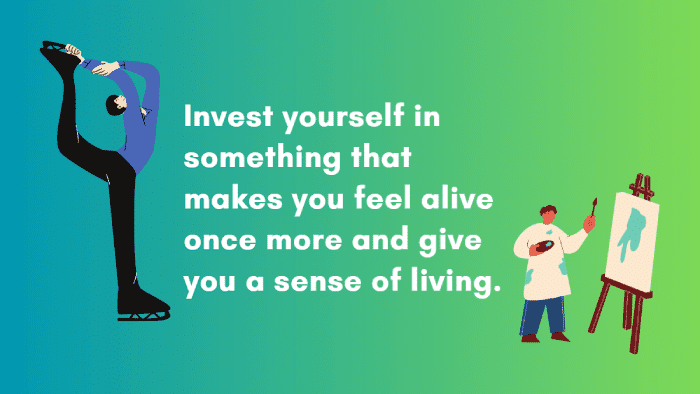
Instead, it should make you feel alive once more and give you a sense of living. So, what can it be that you want to invest yourself in?
Say, you learn a new skill, for example, skating, if you’re an adventurous type of person. Or you could participate in a play. Just do something that makes you happy in the long term. Not short-term temptations.
In addition to distraction, you need to learn how to control your thoughts. And for that, meditation is the best remedy.
Although it’s not possible to control your thoughts, meditation allows you to watch them and let them go. Yes, that’s what meditation teaches us. And in moments of regret, we need guidance like this more than ever.
So, while learning something new and becoming talented, sit quietly in a dark room for 10 – 15 minutes. 😝 A dark room isn’t necessary, by the way.
8. If You Knew, You Would Have
The feeling of regret is a nasty bitch. Honestly. It keeps you where you shouldn’t be. Actually, the meaning of regret is that we are not content with what happened because we wanted something else.
It’s just the same when we don’t wake up early in the morning. But it’s too intense.
When we don’t wake up early and choose to hit the snooze button later in the day, we regret it. And while regretting what we do, we try to correct the situation by saying, “I shouldn’t have hit the snooze button.” Or “I should have slept early last night.”
I should have done this or that. I shouldn’t have said that or something else. I wish I knew it.
And there are so many patterns we play over and over. But this isn’t how it works because what happened was supposed to happen.
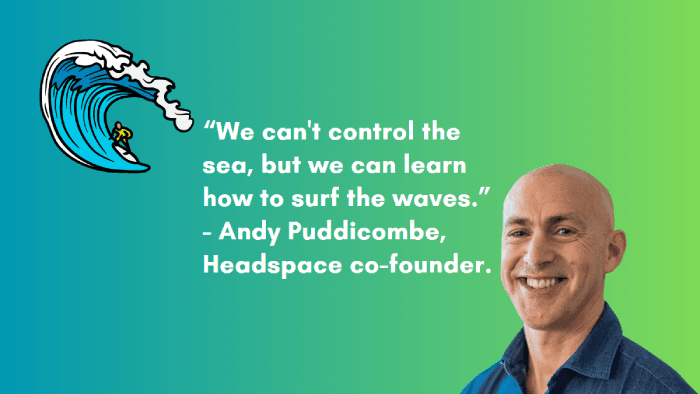
I did the same thing, but while meditating on the Headspace app, I came across a very good episode on regret by Andy Puddicombe, which saved me.
In that short episode, Andy explains that when we go through regret, we aren’t living in the present time, moment to moment. Instead, we are stuck in the past and tell ourselves countless possibilities. But if we knew what was right, we would have done that.
However, whatever we did in that moment was the best thing we had in our minds for that moment. So, there’s no point in regret.
If you knew, you would have. But what you did, you thought, was the best thing, and that’s why you did it. And if you give yourself more time, you’ll find that whatever you’re thinking right now as the best choice will not remain the same.
Later in life, you’d find many other choices.
Therefore, rather than living in wishful thinking, focus on what you have now and how to make the best of it. And trust me, you can always build something magnificent from the rubble.
Or perhaps you don’t have to. So, let it go.
9. It’s Not the End: Have Faith
If you’re reading this point, it simply means you are not done yet. Your story hasn’t ended.
In our book, “The Bright Rhythm,” there’s a great line by the protagonist who, after losing his ability to talk, walk and see, somehow manages to reach the platform he always wanted to.
There he addresses people by saying, “If you’re alive, if you’re still breathing, then it’s still possible. Till you have air in your lungs, there are possibilities to do anything.”
And that’s it, people. No matter what you have done, there’s always a way to make something good. If you want an example, then learn from Stephen Hawking, Steve Jobs and Malcolm X.
Apart from these, there are many-many great personalities who lived and are living to make a difference after going so wrong in their lives.
If you need more examples, start with these 13 people’s stories to inspire yourself to become a better person. Know this, your mistakes aren’t you. Your mistakes aren’t your whole life, and they probably are not the end. Not the end.
Be Ready to Forgive Yourself
If you have read the above points seriously, I want you to do it again. I believe you can do that because it’s better than regretting and playing the past over and over.
Once you’re done with it, it’s time to take action. No matter where you are right now, whether in your bed, in front of the office desk or whatnot. I want you to get out of that — bed, chair or commode.
Then go and drink a glass of water. Or two, if that helps. Then breathe. Not just normal breathing, but slow once. Deep. Do it as long as you like.
And once done, be ready to forgive yourself, which means try those steps mentioned above.
If you need additional help, you can read the following articles or consult the nearest psychologist. Go to therapy because only action will help you realise what your worth is and how capable you’re.
- Confusion in Life – Why Happens & How to Stop It: 7 Ways
- Why Does Love Hurt So Much? 6 Ways to Heal If Hurt by Love
- Giving up on life? Read before you die
- I don’t know what to do with my life – Yes, you do
And one more thing that will make you ready to forgive yourself is that nothing in this world is unforgivable. Whether you want to forgive yourself for cheating, past mistakes or something else, you can always forgive yourself without thinking twice.
Because if God can forgive people, so can you. Even if you don’t believe in God, believe in humanity. Just embrace yourself and do it.
If you find this article helpful and want to read more, subscribe to our free newsletter. You can also share it with others and comment on anything you have on your mind. Plus, reach out to us on Facebook, Instagram or Twitter.
That’s it; thanks for being here.
Nathawat Brothers
Putting thoughts for everyone.
P.S. Buy us a coffee if you like us to write more helpful pieces for people.
